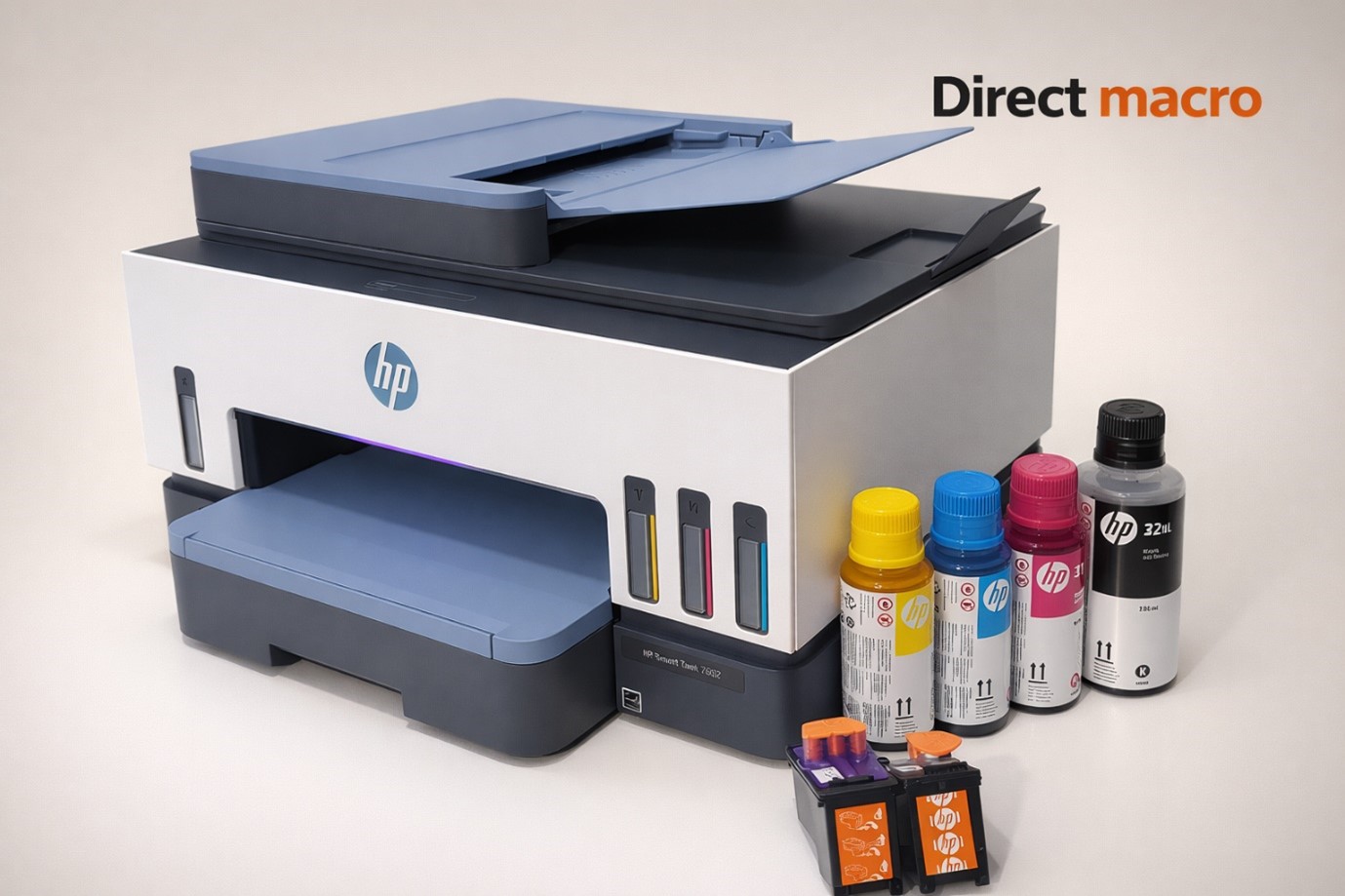Intel Core i5 vs i7: Which Intel Processor Is Right for You?
Whether you are running everyday emails, playing advanced games, or creating high-quality content, it’s all possible with the right processor. Among the best processors on the market, the Intel i5 and i7 are the two mainstream processors from Intel’s CPU processor family. Both the i5 vs i7 processors are priced relatively close to each other. The difference between i5 and i7 processors becomes massive when it comes to meeting workload demand. In this blog, we will discuss the key difference between i5 and i7 and help you choose the best processor according to your work requirements.
Here is the performance evaluation of Intel Core i5 vs i7:
Performance Evaluation of Intel Core i5 vs i7
Core Count and Threads
A CPU core is the major processing unit that processes the computer’s tasks and instructions. A CPU has multiple cores to handle multiple tasks. The greater number of cores a PC has, the more it is supposed to perform better. Most of Intel’s processors are based on quad-core technology, which is quite sufficient for all mainstream users. However, those with advanced working requirements, such as data engineering, may need more core counts. On average, the Intel i5 is composed of four to six cores, while the Intel i7 is composed of six to eight cores or more. Following processor cores consists of even more core count to support hyperthreading. In order to avoid buying a processor with less than four cores. It’s better to look for recent generation Intel processors, which may be available with the name structure starting as intel Corei7- 12xxx OR Intel corei5-9xxx.
Laptops with Intel’s average processor often end with the letter U or Y with the model’s name. While some laptops have a different name structure, it ends in the letter “G,” which comes with a number that tells the GPU’s performance.
Core Counts & Threads Differences Between I5 and I7 Processors
| Intel Processor | Core Count | Number of Threads |
| Core I5 13400 | 10 | 16 |
| Core I5 13600 | 14 | 20 |
| Core I7 13700 | 16 | 24 |
| Core i7 13th 14700k | 20 | 28 |

Clock Speed
Clock speed is the speed at which a processor executes instructions. Clock speed plays an important role in defining the CPU’s overall performance. Intel Core i5 has low base clock speed compared to Intel Core i7. A 13th generation core i5 has a base clock of 2.5 GHz. On the other hand, the Intel Core i7 of the 13th generation has a base clock of 3.4 GHz. Core i7 offers faster processing speed, which makes it highly compatible with heavy-duty applications.
Turbo Boost and Hyperthreading
Intel Core Processors come with turbo boost technology that allows users to increase the processor’s base speed more than its default limit. Using this technology, Intel’s processor can offer hyperthreading and efficient multi-tasking with heavy workloads. A thirteenth-generation Intel’s core i5 can reach 4.8 GHz from its default clock speed of 2.5 GHz. On the other hand, a thirteenth-generation processor, the Core i7, can reach from 3.5 GHz base clock to 5.4 GHz Turbo Boost. The increase in base clock speed allows hyperthreading to effectively handle compute-heavy processes.
Considering turbo boost, is i5 or i7 better for gaming?
If you are wondering, is i5 or i7 better for gaming? Core i5 can’t offer multi-threading. So, it’s definitely the Core i7 that can effectively work well in frequently changing gaming environments with its high overclocking speed. Intel Hyper Threading allows multi-threading in a CPU. This allows two processing threads to simultaneously work on cores, allowing seamless gaming experience.
How do I check the Turbo Speed of a Processor?
You can’t compare the turbo speed when buying an Intel Core i5 vs i7. It will not always be there on the PC specification model. You can get the turbo details after plugging it into Intel’s specs database.
Cache Size
Another aspect when comparing Intel i5 vs i7 is cache size. The bigger cache size allows more frequent data handling and faster data access. A large cache size helps with multi-tasking since it already allows the system to handle background data before making adjustments to a new task or instruction. When comparing the cache size of Intel Core i7 vs i5, the Core i7 has a bigger cache size compared to the i5. Allowing it to process data more quickly. This makes it perfect for gaming setups, high-end professional setups for data engineering. Processors with core i5 have a cache size beginning from 6 MB to 12 MB. On the other hand, cache size in core i7 processors starts with 8 MB to 16 MB.
Integrated Graphics
Although all of the laptops with Intel Core i5 vs i7 processors come with integrated graphics software, advanced laptops with Core i7 and i5 come with integrated Intel Iris Xe graphics, while entry-level laptops with Core i7 and Core i5 have integrated Intel UHD graphics. The integrated graphics in the Core i5 can efficiently support entry to mid-level graphics tasks without requiring a separate chip. Comparing i5 or i7 for gaming, Core i5 can support high-end games like Minecraft and Fortnite at a resolution of 720p. On the other hand, the Intel Core i7 offers comparatively better gaming experiences because it has higher integrated GPU frequencies. With core i7 integrated graphics, you can run an advanced gaming console with a resolution of 1080p. Although for higher performance, you have to get a separate GPU chip.
A Quick Glance on Power Consumption
Power consumption of a processor depends on its architecture, core count, clock speed, turbo speed, and other features that take power. Therefore, a high-end process tends to take up more power compared to mainstream core processors. Considering the build performance, Core i7 takes higher thermal design power compared to Core i5.
A processor in the core i7 range has a TDP in a different processor ranging from 65W to 219W since it has more cores and threads count. Processors in the core i5 range are available with an average TDP rating of 65W to 95W.
Performance Benchmarks of i5 vs i7
When comparing the performance benchmark of Intel Core i7 vs i5, Core i7 has outperformed Core i5 in performance by 20%–30% faster, according to the Intel comparison of i5 vs i7.
Another performance comparison carried out by CPU Benchmark demonstrated the performance of the Core i5 6600k at an average benchmark of 72.4%. While the average performance benchmark of the core i7-6700k is 80.8%. In which, core i7 processors clearly outperform core i5 build processors.
Specification Chart
Here is the specification chart showing the difference between intel i5 and i7 processors.
| Features | Core i5 | Core i7 |
| Base Frequency | 3.8 | 4.2 |
| Max Turbo Frequency | 4.2 | 4.5 |
| Cache Size | 6-12 MB | 8-16MB |
| Base clock speed | 2.5GHz – 3.8GHZ | 2.6 GHz – 4.0 GHz |
| Overclocking Speed | Up to 5.4GHz | Up to 5.4GHz |
| Thermal Design Power | 65W – 95W | 65W – 219W |
| Use Case | -Mid-Level Work -General Computing -Light Gaming Experience |
-High-End Work -Intensive Multi-tasking -Advance Gaming -Professional Workload |
i7 9700k vs i5 9600k
Although there is not much difference between the 9th generation core i7 9700k vs i5 9600k. Core i7 in 9th generation has 6 cores and 6 threads, while Core i5 in 9th generation has 4 cores and 4 threads. Although there is less difference in core counts but a significant difference between prices of both. According to the user benchmark performance score, a 9th generation core i7 outperforms core i5 by 8%.
Conclusion
After thorough research on the Intel Core i5 vs i7, we reach the point that the Core i7 processor offers considerably faster speed than the Core i5. In conclusion, there is not much difference in an Intel Core processor besides core counts and the number of threads that change the entire game. The higher the number of core counts, the better performance it is going to offer. If you are looking for the best quality Intel processors, Direct Macro has a large number of new and refurbished processors for you.
FAQ’s
Is i7 better than i5?
Whether you go for i5 vs i7, which is better for you depends solely on the individual requirements. If you need a laptop for everyday computing, minimal multi-tasking, and mainstream gaming, then the Core i5 with the recent generation is the best choice for you on a smaller budget. However, if you need a laptop with a higher base clock and the ability to perform heavy multi-tasking and advanced games, then the Core i7 can be your best choice. So, is i7 better than i5 totally depends on each case. However, in overall performance, Core i7 is faster and better than i5.
Is i5 or i7 better for gaming?
Comparing the core i5 or i7 for gaming, the I7 is definitely going to win in that regard. Intel Core i7 has more advanced metrics, higher clock speed, and overall efficient performance, which easily support high-end games. However, a core i7 processor may be available in the market at comparatively expensive prices. If you are running less demanding games, Core i5 with the latest generation is a better choice for you. You can also go for Core i7 with a slightly older generation.
What is the difference between Core i5 and Core i7?
Core i7 is a much more advanced Intel processor compared to Core i5. It has a greater number of core counts, hyperthreading capabilities, and overall improved performance. Though it has greater power consumption, it can support systems with intensive workload requirements. Core i5, on the other hand, is perfect for low- and medium-range computing systems.
Do you need advice on buying or selling hardware? Fill out the form and we will return.

Sales & Support
(855) 483-7810
We respond within 48 hours on all weekdays
Opening hours
Monday to thursday: 08.30-16.30
Friday: 08.30-15.30








